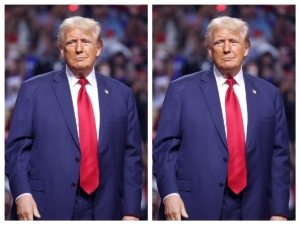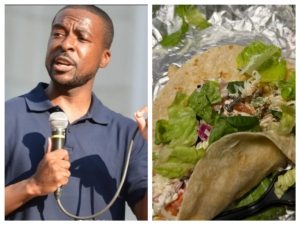South Africa rolled out a full display of state power on Wednesday as police and military units staged a parade of helicopters, K-9 teams and motorcycle officers ahead of anticipated demonstrations during this weekend’s Group of 20 summit in Johannesburg.
The security show signified the beginning of an expanded operation that brings together police, the army and intelligence services under the National Joint Operational and Intelligence Structure, which has taken charge of protecting the high-profile gathering.
Authorities have added 3,500 police officers to the deployment and placed the military on standby. Deputy national commissioner for policing Lt. Gen. Tebello Mosikili said on Tuesday that officials expect demonstrations in Johannesburg and other major cities. “We will allow that right (to protest) to be exercised,” she said. “But within the proper directives and proper confines of the law.”
READ ALSO: South Africa’s Ramaphosa hits back as Trump pulls U.S. from G20, calling it ‘their loss’
Specific protest zones have been created around the summit venue, an exhibition center located beside the country’s largest soccer stadium. Airports Company South Africa has also introduced “speakers’ corners” inside major airports, where arriving demonstrators will be “kindly” directed if they attempt to protest as world leaders land.
More than 40 countries and international institutions such as the United Nations, the World Bank, the International Monetary Fund and the World Trade Organization are expected to attend the two-day summit, which begins Saturday. A diverse range of groups including anti-capitalist activists, climate organizers, women’s rights advocates and anti-migrant movements plan to use the moment to highlight both global issues and South Africa’s own struggles with deep inequality and poverty.
Tensions have already surfaced. A trade union representing members of the Afrikaner white minority put up billboards declaring: “Welcome to the most RACE-REGULATED country in the world.” One billboard was removed by city officials, prompting the union, Solidarity, to threaten legal action. The signs reference South Africa’s affirmative action laws, which prioritize opportunities for Black citizens and have become a point of friction in relations with the United States.
The controversy intensified after U.S. President Donald Trump announced he would boycott the summit, claiming South Africa’s Black-led government is enforcing racist, anti-white policies and persecuting Afrikaners. His assertions have been widely dismissed as unfounded, but the U.S. absence casts a shadow over what is set to be the first G20 summit held on African soil.
READ ALSO: U.S. to skip G20 over Trump’s claim of ‘persecuted whites’ in South Africa
Several South African groups see the event as a chance to push urgent national concerns. Women for Change has called for a nationwide shutdown on Friday, urging women to stay away from work in protest of the country’s staggering rates of femicide. “Because until South Africa stops burying a woman every 2.5 hours, the G20 cannot speak of growth and progress,” Women for Change said.
An anti-immigration movement plans to march over the country’s joblessness crisis, with unemployment at 31 percent, AP reported. Meanwhile, a coalition of climate and inequality campaigners has set up an alternative summit in another part of Johannesburg, describing the G20 gathering as “for the rich.”
The city itself has undergone a rapid clean-up ahead of the meeting. Crews have been repairing long-neglected infrastructure, a campaign joined by President Cyril Ramaphosa last week when he put on green overalls and worked alongside teams in Soweto near the summit site.
Many Johannesburg residents view the sudden investment in repairs with skepticism. Years of broken streetlights, potholes and persistent water and electricity outages have eroded trust in the city’s ability to maintain basic services. “Us hosting this G20, I don’t really think it’s going to be beneficial for South Africans, for the ordinary South Africans. It’s just a way to waste money, if I can say,” resident Lerato Lelusa said.
READ ALSO: South Africa blasts Trump’s refugee policy favoring white Afrikaners










